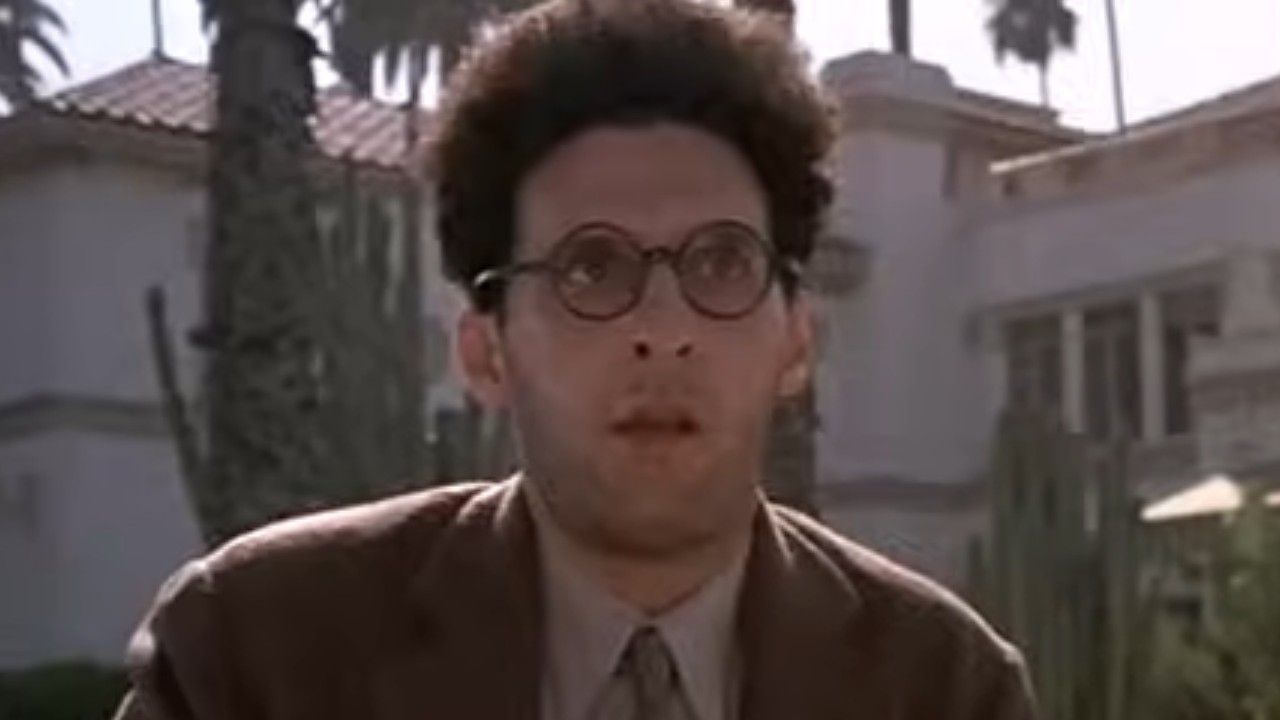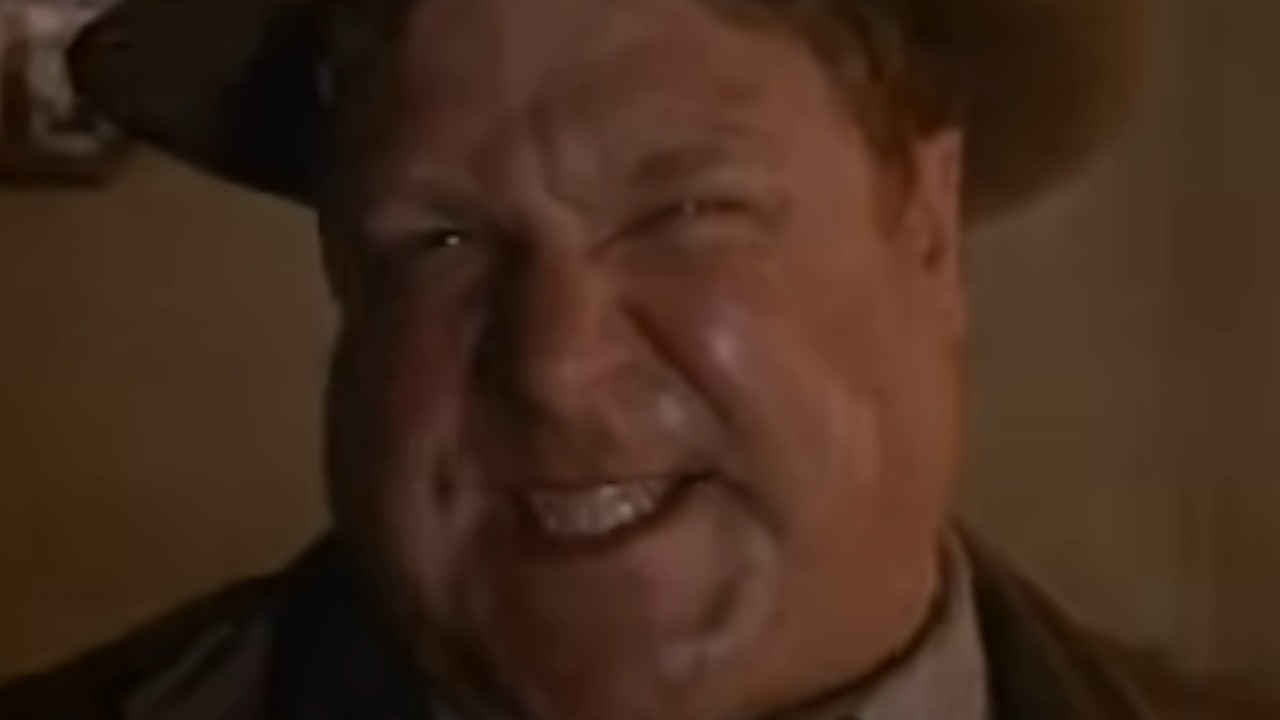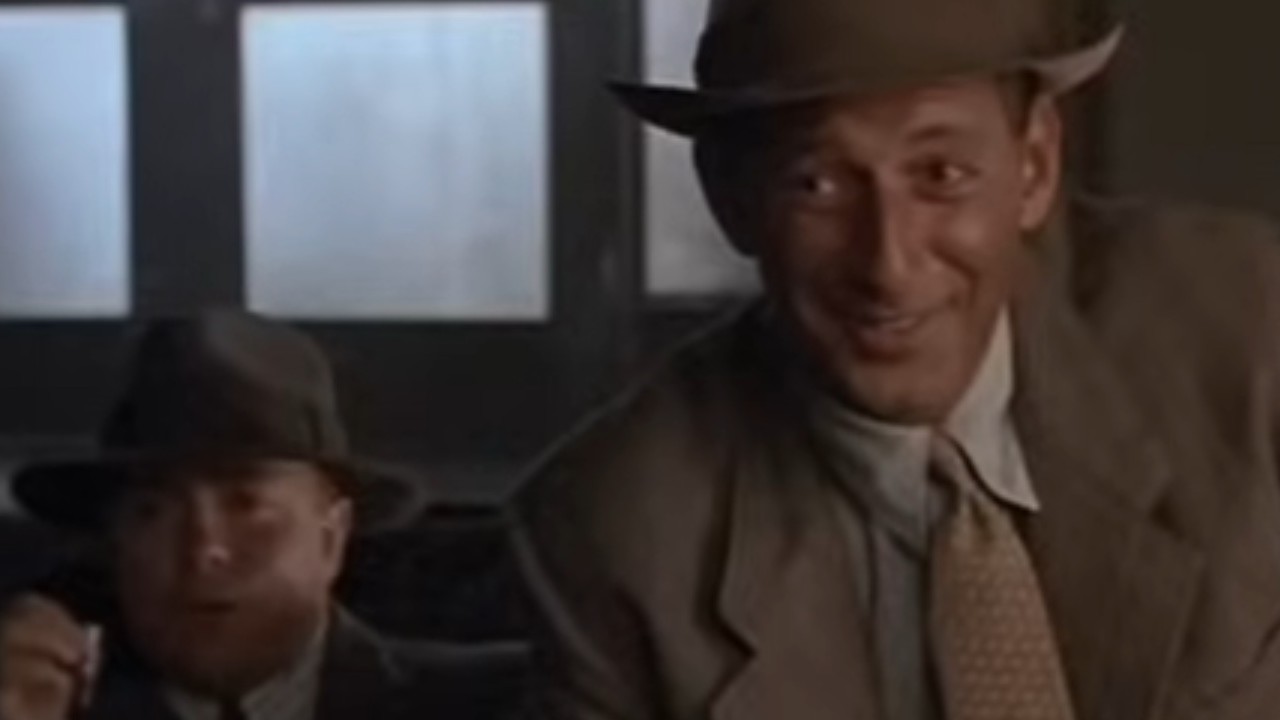
There are great Coen Brothers’ movies, and then there's their greatest movie, which is, in my opinion, 1991's Barton Fink.
Yes, I know. Who the hell picks Barton Fink as their favorite Coen Brothers movie? Most people would probably pick No Country for Old Men, or The Big Lebowski, but I've always just loved Barton Fink the most out of all of their work.
So why, pray tell, is it so overlooked then? I mean, while I wouldn't call it “underrated” like some other Coen Brothers’ movies (it won the freaking Palme d'Or, after all, making it the only film of theirs to do so), I would say that it doesn't get nearly as much love as it should, and I'm here to tell you why it must.

It Truly Is A Nightmarish Experience Watching This Film...In A Good Way
Barton Fink is probably the Coen Brothers at their most oblique. It's about a New York playwright (John Turturro) who is commissioned to write scripts in Hollywood, and he’s tasked with writing a story about wrestling, which he is completely out of his depth doing.
This leads to crippling writer's block, which I'll get into later, and he'd probably just sit in his room all day if not for some noises on the other side of his wall, which are coming from the one and only John Goodman, who plays an insurance salesman named Charlie Meadows…or so he says.
You see, from there, everything goes downhill to the point of becoming nightmarish (there's a reason why some people compare this story to Dante's Inferno). In fact, even though the film is often labeled as a dark comedy, some people even compare it to a horror movie, sort of like how Mulholland Drive is sometimes considered as such.
Goodman's character turns out to be a serial killer, and Turturro's character becomes an accessory to murder (which is ridiculous, but also why this film is considered a dark comedy, as well as a thriller). All throughout, there's a ticking clock of whether Fink can deliver his script on time, and when he does, it's considered too artsy (I believe the politically incorrect term used in this film is “fruity”). This is really unlike any other film in the Coen Brothers’ catalog, and I mean that in the best way.

John Goodman Has Never Been More Terrifying Or Unhinged
John Goodman is one of my favorite actors, and Barton Fink is one of his movies that doesn't get talked about nearly enough.
As mentioned earlier, he introduces himself as Charlie Meadows, and he apologizes for the noise he's making in the other room. He seems like a nice enough fellow…however, later in the film, Fink sleeps with a woman, and when he wakes up, he finds that she’s been viciously murdered. Now, the normal course of action would be to call the police, but Fink instead contacts Meadows, who disposes of the body and tells Fink not to contact the police.
We later learn from the police that Meadows is actually a serial killer, and that he really goes by Karl “Madman” Mundt. Not only that, but he himself killed the woman, and Fink is looking at jail time for not reporting it. That is, until Goodman has probably the most insane performance of his career as a hallway gets engulfed in flames, and he wants to show the police officers THE LIFE OF THE MIND!
It's a bonkers performance, and I wouldn't have it any other way.

It's A Film About Writer's Block, Which Speaks To Me
Do you want to know my top three favorite movies? Number 1 is Apocalypse Now, which is one of the best war movies of all time. Number 2 is Big Trouble in Little China, which I've rewatched on countless occasions. And Number 3 is Adaptation, which I think is Charlie Kaufman’s finest film.
Now, I want to stick with that last one, since out of the three, Adaptation is the one that I can relate to the most. That’s because it’s about writer’s block, which, let me tell you, I’ve gone through on multiple occasions. When you sit with something for a long time and can’t get any words out, it truly is maddening, and I feel like Barton Fink gets that down to a tee. Because, I’ve been there, man. Staring at the page, starting, then stopping, then starting again, then backspacing, and then just giving up for the day.
It's soul crushing, and I feel like this film captures that better than any other movie. Even more so than Adaptation, which I mostly love for the dual Nicolas Cage performances. But, Fink encapsulates that feeling of not making any progress, and feeling utterly drained because of it.
It’s a weird sensation, having ideas but not knowing how to express them in words, and the story nails it. Maybe too much, even.

They Also Really Nailed The Time Period
One thing that I didn’t mention in the last entry was that the Coen Brothers were sort of into period pieces back in the early ‘90s. In fact, the inspiration for Fink, which takes place in 1941, was that they were struggling to write 1990’s Miller’s Crossing, which takes place in 1929.
I mean, just think. The Coen Brothers created what I consider their masterpiece after struggling to create another masterpiece. The mind works in mysterious ways sometimes. Anyway, even though a lot of Fink takes place in a grungy, LA hotel, you really get a sense of this being on the outskirts of 1940s Hollywood.
Perhaps it’s the clothes, as they all feel authentic to the time period. Or maybe it’s the clack, clack, clack of the typewriter that really sets you in the mood of this era. Or, maybe it’s the historical references, such as John Mahoney playing an obvious stand-in for William Faulkner (even though his character’s name in this is W.P. “Bill” Mayhew). Or, maybe it’s just the casual anti-semitism uttered from some of the characters.
Whatever it is, it makes it all feel like we’re in that time period, which stays consistent to the very end. Oh, speaking of which…

And I Will Always Love That Ending
Throughout the film, Barton really has only one thing in his hotel room to look at, and that’s a picture of a woman on the beach. The picture represents a mental break for him, who would rather be anywhere else besides this tiny room with this crummy script that he’s working on.
Well, by the end of the film, after all of the calamity and him turning in his soon-to-be-rejected script - he actually goes to the beach, and who should we find there but the woman from the picture that he’d been staring at the entire film. When he talks to her, he asks her if she’s ever been in pictures, to which she says that she hasn’t, and that’s it. That’s the end of the movie.
And, man. I LOVE that ending. Probably just as much as the inclusive ending of No Country for Old Men. It’s because it’s just so surreal, and so…so silly! Have you ever been in pictures? I mean, really? Besides it being a pun, it really calls into question Barton’s mental state by the end of the film, which is why I love it so much.
Have you ever watched Barton Fink? If so, I’d love to hear your thoughts!







